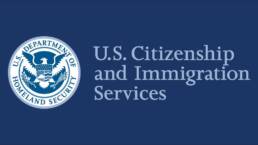In a significant development, U.S. Citizenship and Immigration Services (“USCIS”) has announced a final rule to adjust certain immigration and naturalization benefit request fees for the first time since 2016. This final rule aims to ensure that USCIS can recover a greater share of its operating costs and facilitate more timely processing of new applications.
USCIS Director Ur M. Jaddou emphasized the importance of these fee adjustments, stating, “For the first time in over seven years, USCIS is updating our fees to better meet the needs of our agency, enabling us to provide more timely decisions to those we serve.”
The final rule, a culmination of extensive deliberations following a notice of proposed rulemaking in January 2023, incorporates feedback from stakeholders, including over 5,400 unique public comments. Notable updates include:
- Lowering the agency’s required annual cost recovery by $727 million, in part by considering the budget effects of improved efficiency measures;
- Expanding fee exemptions for Special Immigrant Juveniles and victims of human trafficking, crime, and domestic violence; U.S. military service members and our Afghan allies; and families pursuing international adoption;
- Providing special fee discounts for nonprofit organizations and small business employers;
- Allowing for half-price Employment Authorization Document applications for applicants for adjustment of status and a reduced fee for adjustment of status applicants under the age of 14 in certain situations;
- Expanding eligibility for a 50% fee reduction for naturalization applications, available to individuals who can demonstrate household income between 150% and 400% of the Federal Poverty Guidelines; and
- Implementing a standard $50 discount for online filers.
These fee adjustments, set to take effect on April 1, 2024, mark a step toward enhancing USCIS’s ability to improve customer experience and address backlog growth. However, while these increases will aid in offsetting overall costs, sustained congressional funding remains crucial to manage the increased volume of caseloads associated with recent border crossers.
USCIS encourages stakeholders to visit its Frequently Asked Questions page for a comprehensive list of revised forms and associated fees. USCIS will accept prior editions of most forms during a grace period from April 1, 2024, through June 3, 2024. During this grace period, USCIS will accept both previous and new editions of certain forms, filed with the correct fee. However, there will be no grace period for the following new forms because they must be revised with a new fee calculation. Filers should click the links below to access a preview version of each new form edition before the April 1, 2024, effective date:
- Form I-129, Petition for a Nonimmigrant Worker;
- Form I-129 CW, Petition for a CNMI-Only Nonimmigrant Transitional Worker;
- Form I-140, Immigrant Petition for Alien Workers;
- Form I-600A, Application for Advance Processing of an Orphan Petition (and supplement 1, 2 and 3); and
- Form I-600, Petition to Classify Orphan as an Immediate Relative.
USCIS will use the postmark date of a filing to determine which form version and fees are correct but will use the receipt date for purposes of any regulatory or statutory filing deadlines.
In conclusion, the finalization of these fee adjustments reflects USCIS’s commitment to optimizing immigration services, ensuring fairness, integrity, and respect for all applicants and petitioners.
If you have any questions about the USCIS Fee Rule, contact our office today to set up a consultation with one of our attorneys!
Related Posts
January 21, 2026
Success Story: E-2 Employee Visa for Essential Manager
November 12, 2025
TN Success Story: Three-Year Approval for a Chemical Engineer
Ready to have Berardi on your side?
Whether you’re a business looking to hire or a professional hoping to relocate, immigration law can be complicated. But you don’t have to do it alone. Put our experience to work for you.



